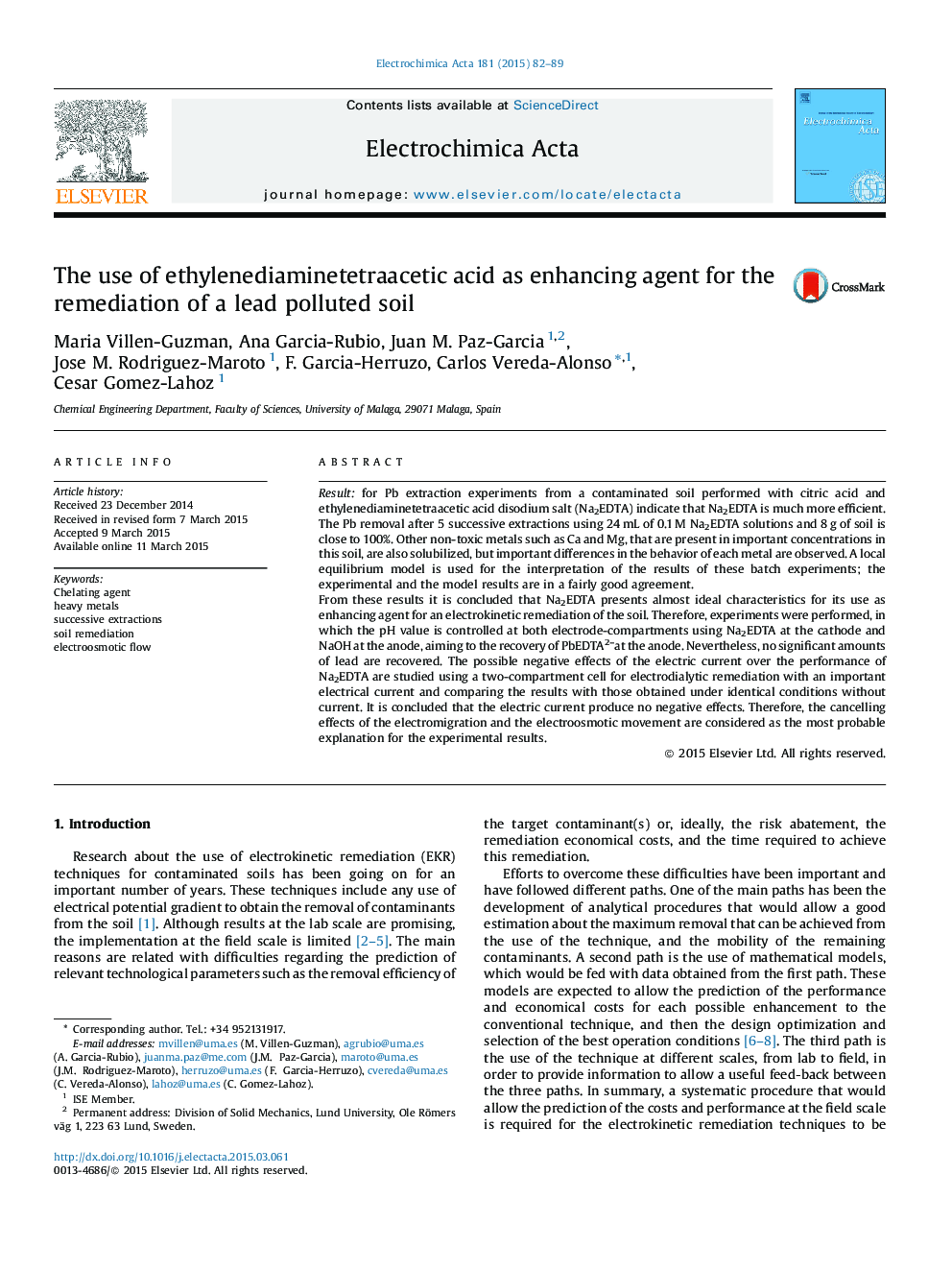| Article ID | Journal | Published Year | Pages | File Type |
|---|---|---|---|---|
| 183475 | Electrochimica Acta | 2015 | 8 Pages |
•Successive extractions of lead with EDTA allow almost 100% Pb removal from soil.•Local equilibrium model yields a good agreement with the experimental results.•EDTA-enhanced EKR yields no significant changes in the soil Pb distribution.•The simultaneous electromigration and electroosmotic movement cancel each other.
Resultfor Pb extraction experiments from a contaminated soil performed with citric acid and ethylenediaminetetraacetic acid disodium salt (Na2EDTA) indicate that Na2EDTA is much more efficient. The Pb removal after 5 successive extractions using 24 mL of 0.1 M Na2EDTA solutions and 8 g of soil is close to 100%. Other non-toxic metals such as Ca and Mg, that are present in important concentrations in this soil, are also solubilized, but important differences in the behavior of each metal are observed. A local equilibrium model is used for the interpretation of the results of these batch experiments; the experimental and the model results are in a fairly good agreement.From these results it is concluded that Na2EDTA presents almost ideal characteristics for its use as enhancing agent for an electrokinetic remediation of the soil. Therefore, experiments were performed, in which the pH value is controlled at both electrode-compartments using Na2EDTA at the cathode and NaOH at the anode, aiming to the recovery of PbEDTA2–at the anode. Nevertheless, no significant amounts of lead are recovered. The possible negative effects of the electric current over the performance of Na2EDTA are studied using a two-compartment cell for electrodialytic remediation with an important electrical current and comparing the results with those obtained under identical conditions without current. It is concluded that the electric current produce no negative effects. Therefore, the cancelling effects of the electromigration and the electroosmotic movement are considered as the most probable explanation for the experimental results.
